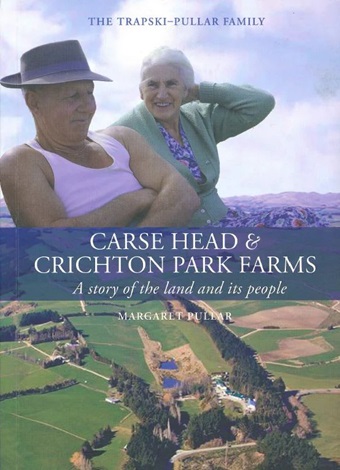 Intergenerational histories are treasures for local communities, telling the stories of the people who built the present.
Intergenerational histories are treasures for local communities, telling the stories of the people who built the present.
In this case the focus is on a farming enterprise, down and across five generations based primarily at Pukerau-Kaiwera-Waipahi, though also touching on Central Otago.
The founding matriarch, Otago immigrant Irishwoman Alicia McKenna, had a hard and tragic life after her Polish husband Frederick Trapski died as the result of a coaching accident, but she proved an exemplar for the stamina and skill settlers needed. Left with four children under age 9, she established the farm on the land her husband had only just paid a deposit for, and despite low produce prices, by the time of her own premature death in 1883 she had the debt paid off and her children’s future assured.
Or as assured as a farming enterprise can be, for while a family story with this continuity on the land marks ongoing economic success, adversity is a major theme.
Farming involves hardships and sacrifices – none more so than during the 1980s rural restructuring – but it’s the many deaths and serious injuries, often of young people, and in horrific circumstances, that will strike a modern reader.
Alicia Trapski’s best-known modern descendant, ACC whistleblower Bronwyn Pullar, could certainly draw on a family heritage of gritty determination. There are light touches here as well, though, as in an appendix presenting beautifully illustrated family baking favourites.
The book originated in research for a New Zealand Century Farm Award, which was established with the aim of preserving rural history.
